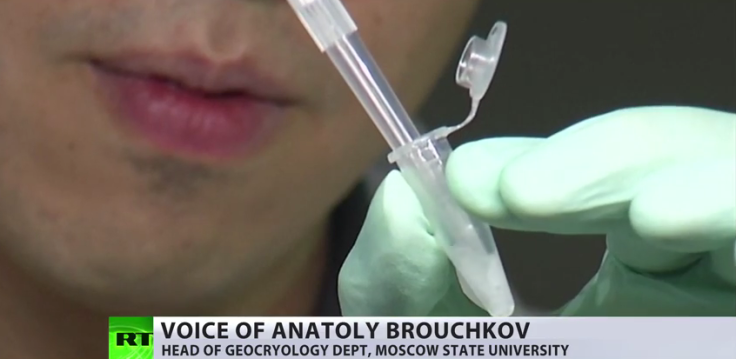'Eternal Life': Russian Scientist Anatoli Brouchkov Injects Himself With 3.5-Million-Year-Old Bacteria To Boost Longevity, Immune System

The wait for immortality may soon be over, at least according to a scientist in Russia. Anatoli Brouchkov, head of the Geocryology Department at Moscow State University, claims injecting 3.5-million-year-old Siberian bacteria has given his health and energy a boost. He believes its DNA and genes can contain the cure to aging.
"I started to work longer, I've never had a flu for the last two years,” said Brouchkov, in an interview with Russia TV. "But it still need the experiments. We have to work out how this bacteria prevents aging. I think that is the way this science should develop. What is keeping that mechanism alive? And how can we use it for our own benefits?"
The bacteria, named Bacillus F, was first discovered in 2009 embedded in ancient permafrost at a site known as Mammoth Mounter in the Sakha Republic, also known as Yakutia, in Siberia. Since its finding, scientists like Professor Sergey Petrov, chief researcher of Tyumen Scientific Centre, have conducted various experiments on mice and fruit flies, being able to see the impact of the bacteria on their longevity and fertility. “We made experiments with copepods, mice, crops and human blood cells. In all these experiments Bacillus F stimulated the growth and also strengthened the immune system. The experiments on human erythrocytes and leucocytes were also very optimistic,” he told The Siberian Times.
However, one thing Petrov and his colleagues are struggling with is the mechanism behind how the bacteria works. Currently, the scientists know it’s the biological active substances in the bacteria that are able to activate the immune status of experimental animals. Dr. Viktor Chernyavsky, an epidemiologist in Yakutsk, believes this is why “mice grannies not only began to dance, but also produced offspring,” in an experiment. If this same substance were to be given to humans, it could lead to a significant improvement in their health.
There are three different strains of bacteria found in the permafrost, including the rejuvenation of human life. Brouchkov, who is his own “human guinea pig,” is adamant about figuring out just how the bacteria protects against cell damage. "I would say, there exist [in the world] immortal bacteria, immortal beings. They cannot die, to more precise, they can protect themselves,” he said. “Our cells are unable to protect themselves from damage, these bacteria cells are able to protect themselves.”
Brouchkov and his research team have completed the deciphering of the Bacillus DNA and have even been able to completely restore a sequence of genes in it after several years. However, the scientists now face a complicated task of figuring out which genes are responsible for the longevity of the bacteria, and which proteins are protecting the DNA structure from damages. In other words, what is providing this bacteria with vitality?
Figuring out the mechanism behind the bacteria’s vitality could have significant implications for our health. Injections of the bacteria could help boost our natural defenses as we grow older. "If we can find the mechanism how that bacteria stays alive, and then we probably will be able to find the cure to prolong our own life," Brouchkov said.
Published by Medicaldaily.com



























